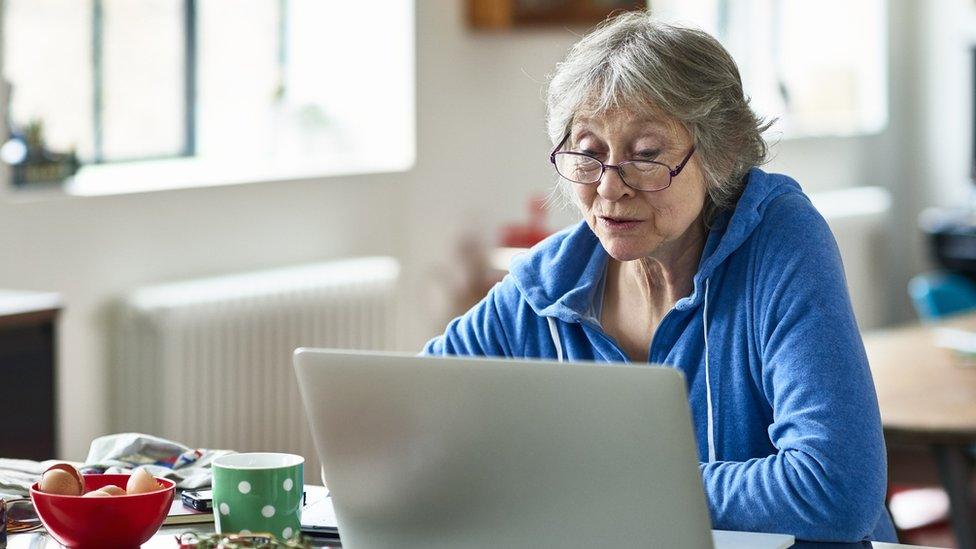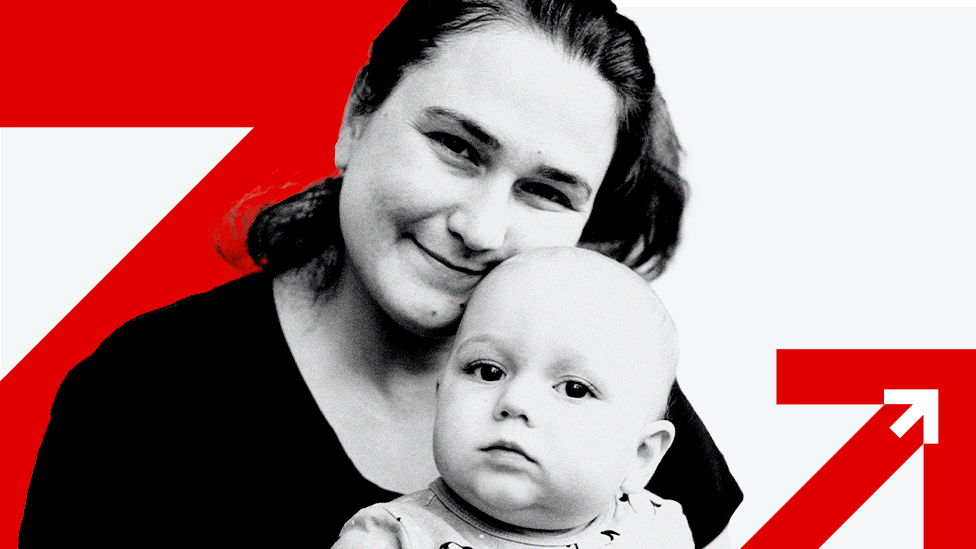Millions to receive cost of living payment
- Published

More than six million people with disabilities in the UK will start to receive a £150 payment from Tuesday, to help with the cost of living.
Households who qualify will receive the payment, distributed by the government, over the next two weeks, between 20 June and 4 July.
The payment is made automatically and those eligible for the support do not need to take any action.
It follows a disability cost-of-living payment paid in September.
People on the following disability benefits are eligible for the latest payment:
Disability living allowance
Personal independence payment
Attendance allowance
Scottish disability payments
Armed Forces independence payment
Constant attendance allowance
War pension mobility supplement
Cost-of-living payments were originally introduced to help struggling families cope with the soaring cost of gas and electricity.
However, they were never exclusively targeted at these bills, and households could always spend the money as they saw fit.
Cost-of-living payments aimed at low-income households and pensioners have also been made by the government in recent months.
In addition all household energy bills were cut by at least £400 between October and March, although there are no plans to repeat this next winter.
Households' finances have been hit by soaring prices, with inflation - the rate at which prices rise - hitting 40-year highs last year.
Food prices in the UK continued to surge at the fastest rate in nearly 45 years in April, with staples like sugar, milk and pasta up sharply.
Chancellor Jeremy Hunt said: "The additional costs faced by disabled people mean inflation is particularly challenging, which is why halving it this year and getting back to the Bank of England's 2% target is our priority."
However, the head of one charity said the £150 payment would "barely scratch the surface" for many households.
Richard Kramer, chief executive of Sense, a charity for people with complex disabilities, says those that are dependent on "energy-intensive equipment" such as powered wheelchairs and feeding machines are facing spiralling costs.
"The increased costs of running this equipment, alongside other key expenses such as paying for accessible transport and specialist diets, have already pushed almost three-quarters of disabled households into debt."
The inflation rate fell to 8.7% in the year to April - down from 10.1% in March. However, a lower rate does not mean prices are coming down, only that they are rising less quickly.
The latest inflation figures are due to be released on Wednesday.

What do I do if I can't afford to pay my debts?
It is important that you do talk about financial difficulties before finding yourself in a spiral of debt. The earlier, the better.
If you think you cannot pay your debts or are finding dealing with them overwhelming, seek support straight away. You are not alone and there is help available.
A trained debt adviser can talk you through the options available.


Sign up for our morning newsletter and get BBC News in your inbox here.

Related topics
- Published15 February 2024
